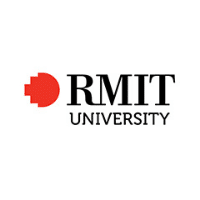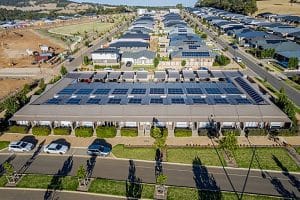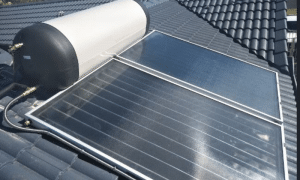RMIT engineering students’ solar powered tuk-tuk will travel 3,000 km from Melbourne to Cairns this November.
The trip will be the first stage of a global journey for the eye-catching vehicle, which features flexible solar panels, a Tesla car battery and a wall charger.
The engineering team will demonstrate that solar powered tuk-tuks are a viable alternative to the heavily polluting tuk-tuks commonly found in South East Asia.
Solar tuk-tuk could slash emissions in South East Asia
Social impact education advisor Unbound came up with the solar tuk-tuk idea.
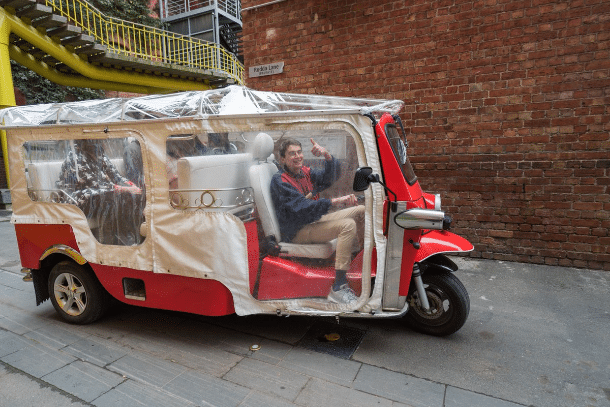
RMIT’s engineering unit is supporting the project, along with the Australian Geographic Society. It also has a small grant from the Australia-ASEAN Council.
Most tuk-tuks used in South East Asia have two-strike engines. These emit significantly more carbon than the four-stroke engines generally found in cars.
They also lack a catalytic converter. This converts carbon monoxide and nitrous oxide produced by petrol and gas into less harmful substances.
Solar tuk-tuks could help boost use of renewable energy in South East Asian nations.
Solar tuk-tuk powered by community charging network
The solar tuk-tuk has a top speed of 50 km. It also has a range of 250-300 kilometres at full battery charge.
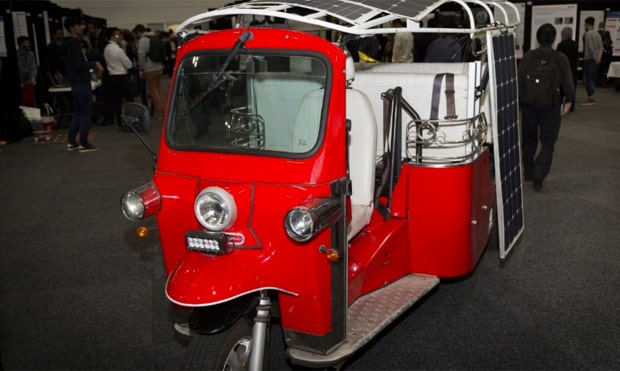
Flexible solar panels feature on the roof, sides and rear. When stationery, side and rear panels can fold up to maximise solar capture.
The team plans to charge up along the route using community buildings with solar power systems. These include schools, indigenous communities and people with off-grid solar installations.
The route will take in all capital cities between Melbourne and Cairns.
It will also pass through regional towns like Yackandandah, Bendigo, Coffs Harbour and Bundaberg.
Students work on next generation of electric vehicles
The solar tuk-tuk had pride of place at RMIT’s engineering exhibition Engenius.
It highlights the drive by RMIT engineering students to create sustainable transport for a new generation.
According to GM Holden HR Director Matthew Hough, Australian graduate engineers are helping create the electric and self-driving cars of the future.
More change in the car industry is expected in the next five years than we’ve seen in the last 50, Hough says.
The solar tuk-tuk is scheduled to circumnavigate the globe in 2019.
Now is the right time to switch to Melbourne solar energy. We recommend seeking at least 3 solar quotes to ensure that you are getting the best deal and selecting the right solar installer in Melbourne whom you can trust. With this, you can guarantee a solar system in Melbourne that meets your energy needs.













